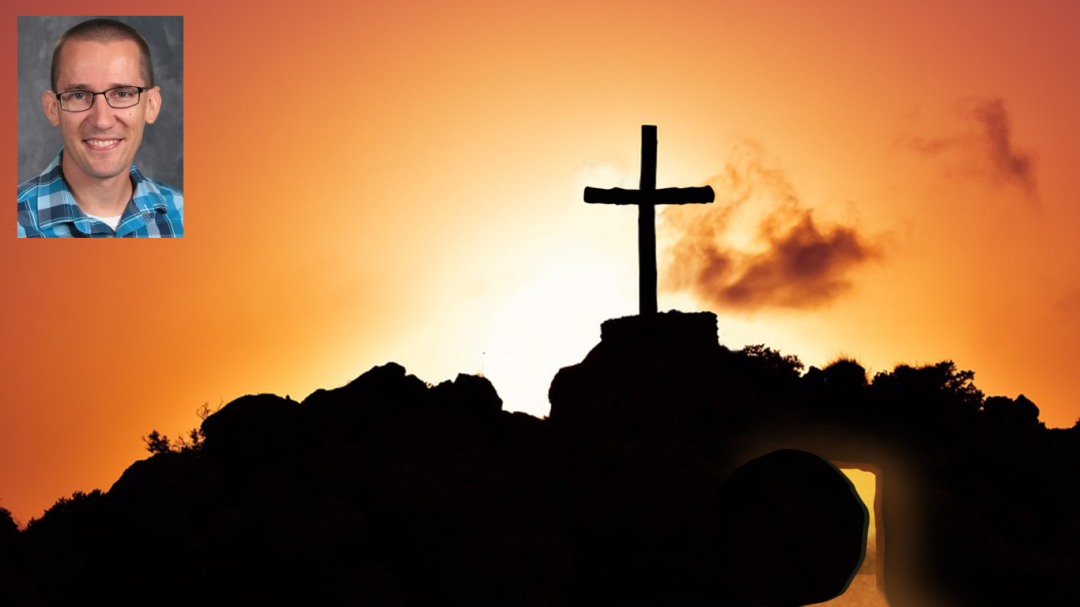2 Simon Peter, Thomas, Nathanael, the sons of Zebedee, and two others were together. 3 Simon Peter said to them, “I am going fishing.” They said, “We will go with you.” They went out and got into the boat, but that night they caught nothing. 4 Just as day was breaking, Jesus stood on the shore; yet the disciples did not know that it was Jesus. (John 21:2-4)
It’s a scene that has been repeated many times over in the life of the church. From time immemorial, this practice has taken place at the back doors of churches across all cultures, times, and languages. As the parishioners slowly file out from service and exchange greetings with the pastor, there are a handful each weekend that will comment on the sermon. A professor of preaching at Concordia Seminary—St. Louis once shared how he likes to respond to the positive, yet non-specific comment, “Pastor, that was a good sermon today.” As flattering and as polite as the comment might be, his regular response is ‘Whether it was a good sermon remains to be seen. The true test of a sermon is what happens after the sermon.” Preaching may at times entertain, inform, and intrigue, but its primary purpose is to effect change in the faith and the life of the hearer. The truth is we can walk away from what we would consider a “great” sermon and yet be unchanged, not allowing the Word to take root and bear fruit within our daily life.
As we move further into the season of Easter and reflect on the disciples’ responses within the various resurrection appearances, it is interesting to apply the above observation to their lives. After all of Jesus’ sermons, after all of their private conversations, and after all of the miracles that they had observed, had the disciples allowed themselves to walk away unchanged? While we should not diminish the horrific pain and sadness they experienced as they saw their friend and teacher brutally killed, we begin to wonder how they could have allowed themselves to forget so much of what Jesus had said and done. Dr. Robert Newton makes an interesting point about the events that surrounded the Resurrection and the days following. He notes that there are two distinct sets of activities that are recorded. The first set focuses on the disciples’ activities on that first Easter week. The women travel to the tomb where they had no other expectation than to find a lifeless body. His male disciples still sat despondent, depressed and afraid hidden away inside the city. There is no hope in their hearts and no sense of expectation in the words. The remembrance of his previous promises and predictions seem erased from their minds. Yet, that’s where we encounter the second set of Easter activities. While they came expecting to find death, Jesus is the one who began to seek out His disciples in their own personal “tombs,” that is, where life and ministry had stopped for them. He personally sought each of them—some on the road, some in the upper room, one back at the tomb, another on the seashore. He found each “dead” disciple, and with His word and appearance brought each back to life (Revitalization: A God Idea! Issues in Christian Education Vol. 45 Fall 2011 p. 13-14). The disciples had previously heard the sermons and saw the miracles. While they thought that they were great while they lasted, the disciples had allowed themselves to initially walk away unchanged.
Even in our reading above from John 21, we see the disciples heading back to life as normal. Peter and the others go back to the trade that they had known for so many years—fishing. By this time, they knew that Jesus was alive again. They knew the hope that they had and yet they were still reeling from the surrealness of it all and couldn’t fully comprehend what it now meant for their lives. So, as they sought to return to day-to -day life as usual, Jesus called them forth and sent them out with a purpose and a mission. The events of the Resurrection of Jesus could not be ignored and so Jesus called them forth with a great catch of fish and an intimate conversation with Peter and the others on the seashore. They were no longer to be the scared disciples who fled into the darkness of night at Jesus’ arrest. Now they were to be those who carried with the powerful message of changed hope and changed faith in Jesus Christ.
So, what are the implications of these truths for our lives? While each of us must wrestle with how God’s Word of promise speak to our personal situation and vocation, there is one thing that stands out to me. In the events of Holy Week, Jesus had proclaimed the greatest sermon ever. Not just with words but with actions Jesus changed history. He poured himself out upon the cross, so that we may be filled with the power of His love. He emptied that tomb of stone, so that we may be filled with His life. We cannot walk away unchanged, for He is the one who comes even today to call us out of our “tombs” of hurt, pain, sadness, selfishness, anger, or whatever we suffer from or struggle with. May the good news of Christ’s resurrection continue to have its way in your life. Amen.
God’s Peace, Pastor Kurt Ebert



